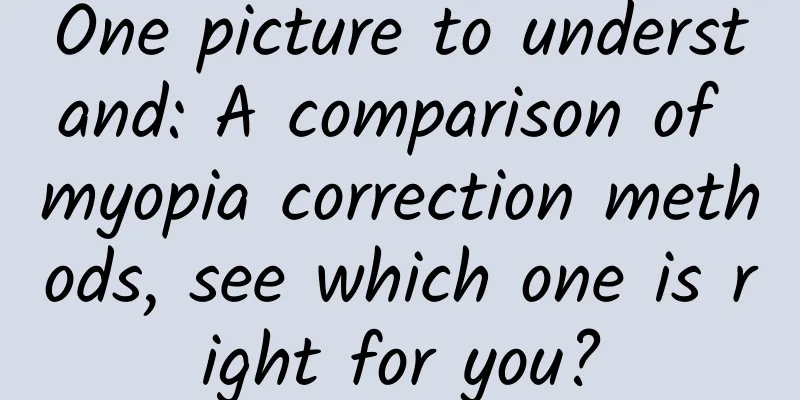Gliptin-type hypoglycemic drugs have few side effects and are suitable for elderly diabetics, but their hypoglycemic effect is moderate

|
Among the hypoglycemic drugs, there is a new class of drugs called "Gliptins". People often ask Huazi what kind of drugs are these and what are their characteristics in treating diabetes? Huazi said that the pharmacological classification of "Gliptin" drugs belongs to dipeptidyl peptidase-4 (DPP-4) inhibitors. Common drugs include sitagliptin, vildagliptin, alogliptin, saxagliptin, etc. This type of hypoglycemic drug has few side effects and is suitable for elderly diabetic patients, but the hypoglycemic effect is not strong, which can be regarded as moderate. Most diabetic patients cannot control blood sugar well when using lipopolysaccharide alone, and usually need to be used in combination with other hypoglycemic drugs to effectively control blood sugar. 1. "Gliptin" that depends on glucose concentration The mechanism of action of "Gliptin" drugs is related to glucose concentration. When the human intestine absorbs nutrients, glucose can stimulate the L cells in the intestine to secrete glucagon-like peptide-1 (GLP-1). GLP-1 can stimulate the secretion of insulin and inhibit the secretion of glucagon, thus lowering blood sugar. However, GLP-1 only exists for a short time in the blood and is quickly broken down by dipeptidyl peptidase-4 (DPP-4), with an elimination half-life of only 1 to 2 minutes. Gliptins can inhibit the activity of DPP-4, prolonging the action time of GLP-1 and thus playing a role in controlling blood sugar. 2. Gliptins have a moderate blood sugar lowering effect. The secretion of GLP-1 is glucose-dependent. When the glucose level is not high, the secretion of GLP-1 decreases. Therefore, when using gliptins alone, it will not cause the side effect of hypoglycemia. However, the effect of gliptins in lowering blood sugar is moderate and not very strong. In relevant clinical trials, gliptins can reduce fasting blood sugar by 0.5~1.0mmol/L, postprandial blood sugar by 2.0~3.0mmol/L, and glycosylated hemoglobin (HbA1c) by 0.5%~0.9%. In actual application, many diabetic patients reported that the use of gliptins alone could not bring their blood sugar to the target level. Therefore, when using gliptins, they usually need to be used in combination with other glucose-lowering drugs. The most commonly used combination regimen is with metformin. It can also be used in combination with insulin secretagogues (such as "glitine" drugs), insulin sensitizers (such as "glitine" drugs) to form a multi-drug combination regimen, or directly with insulin to achieve better blood sugar control effects. When used with insulin secretagogues or insulin, the risk of hypoglycemia increases, and the dosage of insulin secretagogues and insulin needs to be reduced. 3. Gliptins are suitable for elderly diabetic patients who have obvious gastrointestinal adverse reactions when using metformin, which is difficult for elderly diabetic patients to tolerate. However, the adverse reactions of gliptins are mild and can be used for patients who cannot tolerate metformin. For elderly diabetic patients, gliptins can be used as the initial treatment and the full course of treatment to reduce the probability of adverse reactions. When other hypoglycemic drugs cause adverse reactions or hypoglycemia, you can consider using gliptins in combination to reduce the dosage of other hypoglycemic drugs and the incidence of adverse reactions. If other hypoglycemic drugs cannot bring blood sugar to the target, especially when postprandial hyperglycemia occurs, the combined use of gliptins is more effective. It should be noted that if symptoms of suspected pancreatitis occur during use, the use of saxagliptins should be discontinued and medical treatment should be sought promptly. Saxagliptin and agalithin increase the risk of heart failure, so patients with heart failure should be careful when using them. There are no reliable tests to distinguish the efficacy of different gliptin drugs, but there are differences in the time of taking them. Among them, the blood concentration half-life of sitagliptin, linagliptin and alogliptin is greater than 12 hours, and the medication can be taken once a day. The half-life of saxagliptin is 2.5 hours, but its inhibitory effect on DPP-4 can last for 24 hours, and it is also taken once a day. However, saxagliptin is unstable and uses a coating process, so it cannot be broken apart when taken. The half-life of vildagliptin in the blood is 3 hours, and it needs to be taken in two doses, morning and evening. To sum up, the hypoglycemic effect of glitazone is related to the concentration of grapes. It will not cause hypoglycemia when used alone and has few adverse reactions. It is suitable for elderly diabetic patients. However, the hypoglycemic effect is moderate and usually needs to be used in combination with other drugs to effectively control blood sugar. The specific use of the drug needs to be carried out under the guidance of a doctor. If you have any questions about the use of the drug, please consult a doctor or pharmacist. I am pharmacist Huazi, welcome to follow me and share more health knowledge. |
<<: What does the D in tempered glass mean? Are tempered glass films all smaller in size?
>>: Before getting vaccinated, read this article first | World Immunization Week
Recommend
What to do if you have dysmenorrhea and fever
I believe everyone is familiar with dysmenorrhea,...
What is the best medicine for women with frequent urination?
If women have symptoms of frequent urination and ...
The relationship between blocking antibody negative fetal arrest
Fetal arrest means that the fetus stops growing i...
What are the consequences of having my ovaries removed?
The ovaries are part of the female reproductive o...
How to avoid sticking to the pan when frying shredded potatoes
Potatoes are a popular food in life. They are div...
Can breast cancer patients eat leeks?
Can breast cancer patients eat leeks? Breast canc...
What causes dizziness before menstruation?
Menstruation is an indispensable part of a woman&...
What can women eat to replenish their qi and blood deficiency the fastest?
Most women suffer from Qi and blood deficiency, e...
Vision is of great importance! Four common misunderstandings about children using eye drops. Have you fallen into these misunderstandings?
Winter vacation is coming, and it is the cold win...
Wang Lixiang: Add one year to your life in five years, and the "three powers" will extend your life
Recently, the General Office of the State Council...
Pregnant women have yellow discharge but itchy
The physical and mental health of pregnant women ...
How to use BB cream without powder floating? How to use BB cream for the best effect
BB cream is becoming more and more popular and lo...
Treatment for scanty menstruation and black menstruation
I believe that many women pay special attention t...
Dull pain in lower abdomen during pregnancy
Many pregnant women experience dull pain in the l...









